Evaluate the Impact on Society and Apply It to Activities After the 20th Anniversary
~The Pro Bono Team Worked on a Project Evaluation for Terra Renaissance, a Certified Non-profit Organization
Evaluate the Impact on Society and Apply It to Activities After the 20th Anniversary
~The Pro Bono Team Worked on a Project Evaluation for Terra Renaissance, a Certified Non-profit Organization

Panasonic's “Panasonic NPO Support Pro Bono Program” aims to assist non-profit organizations by using employees' professional skills and experience. A team of eight Panasonic employees were tasked with visualizing the “value” of “Terra Renaissance's lecture project, a certified non-profit organization” celebrating its 20th anniversary next year.
Despite the fact that this was the first pro bono project to be conducted almost entirely online due to the new coronavirus pandemic, the final report on December 4 was filled with many exchanges of ideas and ended with smiles on everyone's faces.
Panasonic's “Panasonic NPO Support Pro Bono Program” aims to assist non-profit organizations by using employees' professional skills and experience. A team of eight Panasonic employees were tasked with visualizing the “value” of “Terra Renaissance's lecture project, a certified non-profit organization” celebrating its 20th anniversary next year.
Despite the fact that this was the first pro bono project to be conducted almost entirely online due to the new coronavirus pandemic, the final report on December 4 was filled with many exchanges of ideas and ended with smiles on everyone's faces.
What Is the Evaluation For?
Narrowing Down the Issues by Making the Most of the Various Members’ Areas of Expertise
What Is the Evaluation For?
Narrowing Down the Issues by Making the Most of the Various Members’ Areas of Expertise
Since its establishment in 2001, “Terra Renaissance, a certified non-profit organization (hereinafter referred to as “Terra Renaissance”),” has been working to rebuild the lives of landmine and conflict victims, as well as former child soldiers, in six countries worldwide, including Uganda and Cambodia, in order to “create a society (world peace) where all lives can be lived safely.” Awareness-raising activities in Japan have also been a core project that the organization has been vigorously engaged in since its establishment.
“As we approached our organization's 20th anniversary in 2021, I wondered if it would be possible to look back on the lecture project that our organization has been implementing since its inception. Evaluate its social impact and brush up on it,” said Mr. Yoshinori Kurita of the Awareness Raising and Capabilities Promotion Team. “At the time, I became aware of the pro bono support program and decided to rely on the perspectives, wisdom, and experience of professionals.”
Eight Panasonic employees from across Japan raised their hands in response to this request, and the project began on August 21, 2020. The first step was to gain a better understanding of Terra Renaissance and the NPOs and to discuss “what and how to evaluate them.” “Evaluation can be expressed in a single word, but numerous methods exist. We started with a discussion about what the evaluation was for,” recalls Ms. Sugiko Honda, Project Manager.
Since its establishment in 2001, “Terra Renaissance, a certified non-profit organization (hereinafter referred to as “Terra Renaissance”),” has been working to rebuild the lives of landmine and conflict victims, as well as former child soldiers, in six countries worldwide, including Uganda and Cambodia, in order to “create a society (world peace) where all lives can be lived safely.” Awareness-raising activities in Japan have also been a core project that the organization has been vigorously engaged in since its establishment.
“As we approached our organization's 20th anniversary in 2021, I wondered if it would be possible to look back on the lecture project that our organization has been implementing since its inception. Evaluate its social impact and brush up on it,” said Mr. Yoshinori Kurita of the Awareness Raising and Capabilities Promotion Team. “At the time, I became aware of the pro bono support program and decided to rely on the perspectives, wisdom, and experience of professionals.”
Eight Panasonic employees from across Japan raised their hands in response to this request, and the project began on August 21, 2020. The first step was to gain a better understanding of Terra Renaissance and the NPOs and to discuss “what and how to evaluate them.” “Evaluation can be expressed in a single word, but numerous methods exist. We started with a discussion about what the evaluation was for,” recalls Ms. Sugiko Honda, Project Manager.
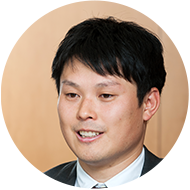
Terra Renaissance Awareness Raising and Capabilities Promotion Team
Mr. Yoshinori Kurita
The team members came from various backgrounds and experiences, ranging from first-time Pro Bono team members to employees who had previously worked on the project several times. Still, they developed their skills through numerous team study sessions to examine evaluation methods for “social impact” and existing business evaluation indicators. Simultaneously, the team was divided into a business analyst team and a marketing team. Each of them used their respective areas of expertise to analyze Terra Renaissance’s existing data, determine the axis of business evaluation, and then conduct the necessary new questionnaires and interviews.
This was the first time that meetings and discussions were conducted almost exclusively online due to the growing severity of the new coronavirus infection. “I was worried about how communication would go because everything was done online, but my company has introduced remote work, so it went rather smoothly,” said Mr. Kazuya Nishi, who was in charge of financial analysis in the analyst team.
The team members came from various backgrounds and experiences, ranging from first-time Pro Bono team members to employees who had previously worked on the project several times. Still, they developed their skills through numerous team study sessions to examine evaluation methods for “social impact” and existing business evaluation indicators. Simultaneously, the team was divided into a business analyst team and a marketing team. Each of them used their respective areas of expertise to analyze Terra Renaissance’s existing data, determine the axis of business evaluation, and then conduct the necessary new questionnaires and interviews.
This was the first time that meetings and discussions were conducted almost exclusively online due to the growing severity of the new coronavirus infection. “I was worried about how communication would go because everything was done online, but my company has introduced remote work, so it went rather smoothly,” said Mr. Kazuya Nishi, who was in charge of financial analysis in the analyst team.
Terra Renaissance’s Down-To-Earth Lectures Are Having an Impact on Young People’s Lives
Terra Renaissance’s Strength and Impact on Society Can Be Measured From Three Perspectives
Terra Renaissance’s Down-To-Earth Lectures Are Having an Impact on Young People’s Lives
Terra Renaissance’s Strength and Impact on Society Can Be Measured From Three Perspectives
The Pro Bono team first interviewed Terra Renaissance to determine “how they intend to use the evaluation.” On this basis, we analyzed existing data, such as surveys of prior lecture participants and donor information, as well as conducted new surveys and interviews.
The impact of Terra Renaissance on society was then defined from the three perspectives of “Financial Capability (financial capabilities to contribute to society),” “Promotion of Behavioral Change,” and “Development of Human Resources Who Can Contribute to Peace Activities.” Following that, the project was evaluated, and recommendations for future endeavors were made.
The Pro Bono team first interviewed Terra Renaissance to determine “how they intend to use the evaluation.” On this basis, we analyzed existing data, such as surveys of prior lecture participants and donor information, as well as conducted new surveys and interviews.
The impact of Terra Renaissance on society was then defined from the three perspectives of “Financial Capability (financial capabilities to contribute to society),” “Promotion of Behavioral Change,” and “Development of Human Resources Who Can Contribute to Peace Activities.” Following that, the project was evaluated, and recommendations for future endeavors were made.
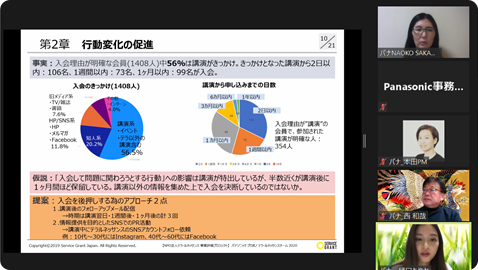
When the team made a proposal
In terms of “Financial Capability,” we compared Terra Renaissance to four other non-profit organizations that do similar work. While Terra Renaissance has achieved exceptional growth rates and effectively operates its projects, it has become clear that it must secure its financial resources to ensure long-term viability. Additionally, we examined the financial structures of several non-profit organizations and classified them as “grant,” “balanced,” or “donation.” While Terra Renaissance is a “balanced” type with a healthy mix of grants, projects, membership fees, and donations, we discovered that despite a large number of lectures, 180 per year, it is unrelated to generating donations and membership fees.
In terms of “Promotion of Behavioral Change,” we used membership data to categorize “their motivations and reasons for joining” Terra Renaissance and discovered that more than half of them stemmed from “the lectures.”
We evaluated “Development of Human Resources Who Can Contribute to Peace Activities” by interviewing Terra Renaissance students, former and new interns, and the teachers who hosted the lectures. We examined the lectures as having a two-stage structure of delivering “talks to make people aware of reality” and “interaction with people when they think about their career path, such as higher education or employment.” We discovered that providing a place to connect with participants after the lecture, such as an online community, could greatly contribute to their subsequent behavioral change. We came across the keyword “mapping” during our interviews. While it has the characteristics of “comfortable,” “being able to grasp reality,” and “being visceral and deeply memorable,” it is also “limited to those with whom it could be shared.” From this, we hypothesized that a “mesh-type relationship” that connects Terra Renaissance, its members, and audiences, as well as a mechanism for directly delivering the voices of local parties, would further strengthen the relationship's continuity.
Ms. Keiko Fujii, a member of the marketing team, stated, “What struck me in the interview was that one of the students decided to go to college to study international relations after hearing a Terra Renaissance lecture in high school.” I was moved to witness the fact that the lecture had an impact on people's lives.”
In terms of “Financial Capability,” we compared Terra Renaissance to four other non-profit organizations that do similar work. While Terra Renaissance has achieved exceptional growth rates and effectively operates its projects, it has become clear that it must secure its financial resources to ensure long-term viability. Additionally, we examined the financial structures of several non-profit organizations and classified them as “grant,” “balanced,” or “donation.” While Terra Renaissance is a “balanced” type with a healthy mix of grants, projects, membership fees, and donations, we discovered that despite a large number of lectures, 180 per year, it is unrelated to generating donations and membership fees.
In terms of “Promotion of Behavioral Change,” we used membership data to categorize “their motivations and reasons for joining” Terra Renaissance and discovered that more than half of them stemmed from “the lectures.”
We evaluated “Development of Human Resources Who Can Contribute to Peace Activities” by interviewing Terra Renaissance students, former and new interns, and the teachers who hosted the lectures. We examined the lectures as having a two-stage structure of delivering “talks to make people aware of reality” and “interaction with people when they think about their career path, such as higher education or employment.” We discovered that providing a place to connect with participants after the lecture, such as an online community, could greatly contribute to their subsequent behavioral change. We came across the keyword “mapping” during our interviews. While it has the characteristics of “comfortable,” “being able to grasp reality,” and “being visceral and deeply memorable,” it is also “limited to those with whom it could be shared.” From this, we hypothesized that a “mesh-type relationship” that connects Terra Renaissance, its members, and audiences, as well as a mechanism for directly delivering the voices of local parties, would further strengthen the relationship's continuity.
Ms. Keiko Fujii, a member of the marketing team, stated, “What struck me in the interview was that one of the students decided to go to college to study international relations after hearing a Terra Renaissance lecture in high school.” I was moved to witness the fact that the lecture had an impact on people's lives.”
The Impact of Lectures at Educational Institutions, as well as a Perspective on How to Progress Beyond Its Origins
The Impact of Lectures at Educational Institutions, as well as a Perspective on How to Progress Beyond Its Origins
Mr. Kiyokazu Oda, Deputy Secretary-General who served as the point of contact for this Pro Bono project, was eagerly awaiting the debriefing session. “Thanks to all of you, I was happy to feel that I could touch the essence of what the founders, Mr. Onimaru and Mr. Kurita, have been working on for nearly 20 years. We were also able to receive a proposal for what Terra Renaissance should do after its 20th anniversary. I am now looking forward to starting work tomorrow.”
Terra Renaissance staff members responded to a variety of questions during the Q&A session that followed the final report and proposal, which allowed for further exploration of the concept and examination of new avenues for its expansion.
For example, in response to staff concerns that the organization has not yet been able to implement electronic money or points due to its reliance on credit cards, bank transfers, postal transfers, and registered letters. A Pro Bono member mentioned, as a possible future fundraising strategy, that “Sometimes companies provide employees with points as part of their employment benefits, but they never use them. It might be worth negotiating with a platformer who offers a system that allows a fraction of the points to be donated to your organization.”
Mr. Kiyokazu Oda, Deputy Secretary-General who served as the point of contact for this Pro Bono project, was eagerly awaiting the debriefing session. “Thanks to all of you, I was happy to feel that I could touch the essence of what the founders, Mr. Onimaru and Mr. Kurita, have been working on for nearly 20 years. We were also able to receive a proposal for what Terra Renaissance should do after its 20th anniversary. I am now looking forward to starting work tomorrow.”
Terra Renaissance staff members responded to a variety of questions during the Q&A session that followed the final report and proposal, which allowed for further exploration of the concept and examination of new avenues for its expansion.
For example, in response to staff concerns that the organization has not yet been able to implement electronic money or points due to its reliance on credit cards, bank transfers, postal transfers, and registered letters. A Pro Bono member mentioned, as a possible future fundraising strategy, that “Sometimes companies provide employees with points as part of their employment benefits, but they never use them. It might be worth negotiating with a platformer who offers a system that allows a fraction of the points to be donated to your organization.”
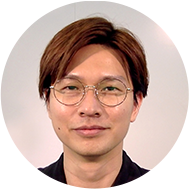
Terra Renaissance Deputy Secretary-General
Mr. Kiyokazu Oda
Additionally, the issue of “the high number of lectures does not correlate with income from donations and membership fees” came as a result of the efforts made to focus on lectures at educational institutions. A discussion arose that there is a high potential for positive changes, such as an increase in supporters, by clarifying how they want to be involved in the long run.
Ms. Naoko Sakamoto, a first-time pro bono participant, was in charge of interviewing participants to assess the impact of human resource development. “I was the one who was affected the most. I was also influenced by the voices of those who heard the lecture, former interns, and Pro Bono members, and I realize that it is the encounters with people that make a difference.” Ms. Sakamoto said.
Mr. Masaya Onimaru, Founder and Director of Terra Renaissance, asked, “How will the thoughts and hearts of those who hear our lectures be converted into actions and change the world?” We were able to explore this important process. “The fact that Pro Bono members raised new perspectives, viewpoints, and horizons that we were not aware of on our own was a great opportunity for us to take the movement to the next level after the 20th anniversary,” Mr. Onimaru said optimistically.
Additionally, the issue of “the high number of lectures does not correlate with income from donations and membership fees” came as a result of the efforts made to focus on lectures at educational institutions. A discussion arose that there is a high potential for positive changes, such as an increase in supporters, by clarifying how they want to be involved in the long run.
Ms. Naoko Sakamoto, a first-time pro bono participant, was in charge of interviewing participants to assess the impact of human resource development. “I was the one who was affected the most. I was also influenced by the voices of those who heard the lecture, former interns, and Pro Bono members, and I realize that it is the encounters with people that make a difference.” Ms. Sakamoto said.
Mr. Masaya Onimaru, Founder and Director of Terra Renaissance, asked, “How will the thoughts and hearts of those who hear our lectures be converted into actions and change the world?” We were able to explore this important process. “The fact that Pro Bono members raised new perspectives, viewpoints, and horizons that we were not aware of on our own was a great opportunity for us to take the movement to the next level after the 20th anniversary,” Mr. Onimaru said optimistically.
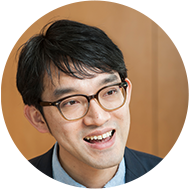
Terra Renaissance Founder
Mr. Masaya Onimaru
Mr. Kurita's words were full of energy. “The Pro Bono members brought out deeply the true feelings of the lecture participants and former interns that we could not pick up on. Thanks to the involvement and accompaniment of Pro Bono members from the outside, we were able to start working on things we had been putting off, and it became the driving force behind our activities. I would like to tie this in with our activities over the next ten years.
Mr. Kurita's words were full of energy. “The Pro Bono members brought out deeply the true feelings of the lecture participants and former interns that we could not pick up on. Thanks to the involvement and accompaniment of Pro Bono members from the outside, we were able to start working on things we had been putting off, and it became the driving force behind our activities. I would like to tie this in with our activities over the next ten years.
Pro Bono Member Feedback
Pro Bono Member Feedback
- I could feel the Pro Bono members' passion and learned that Terra Renaissance works by involving a diverse group of people.
- I first became interested in international issues after hearing a lecture on developing countries in junior high school, went to Vietnam when I was in high school, and volunteered for a month in the Philippines when I was in university. Through the Pro Bono project, I was reminded once more that the lecture is an opportunity to plant seeds in people's minds and influence their subsequent behavior.
- When I reflected on why I joined the project, I realized that I had seen and heard about these issues since I was a child. We hope that the Terra Renaissance lectures will stay with the children and inspire them to participate in activities 10 or 20 years from now.
- The activities of Terra Renaissance revolve around the question, “What are we doing this for?” Each of us who took part was enlightened and became ambassadors. Even though the project has come to an end, I believe that each of us can continue to expand these activities in our respective fields.
- I could feel the Pro Bono members' passion and learned that Terra Renaissance works by involving a diverse group of people.
- I first became interested in international issues after hearing a lecture on developing countries in junior high school, went to Vietnam when I was in high school, and volunteered for a month in the Philippines when I was in university. Through the Pro Bono project, I was reminded once more that the lecture is an opportunity to plant seeds in people's minds and influence their subsequent behavior.
- When I reflected on why I joined the project, I realized that I had seen and heard about these issues since I was a child. We hope that the Terra Renaissance lectures will stay with the children and inspire them to participate in activities 10 or 20 years from now.
- The activities of Terra Renaissance revolve around the question, “What are we doing this for?” Each of us who took part was enlightened and became ambassadors. Even though the project has come to an end, I believe that each of us can continue to expand these activities in our respective fields.
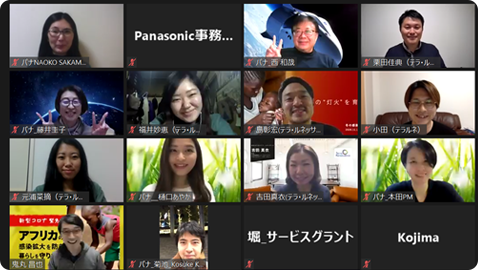
Pro Bono members
A certified non-profit organization Terra Renaissance
Terra Renaissance was established in October 2001 with the aim of “creating a society (world peace) where all lives can be safely lived.” In six countries, including Japan, the NPO addresses four issues: “land mines,” “small weapons,” “child soldiers,” and “peace education.” They aim to resolve issues through international cooperation in the field, while also conducting awareness-raising and advocacy activities in Japan.
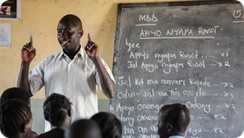
A certified non-profit organization Terra Renaissance
Terra Renaissance was established in October 2001 with the aim of “creating a society (world peace) where all lives can be safely lived.” In six countries, including Japan, the NPO addresses four issues: “land mines,” “small weapons,” “child soldiers,” and “peace education.” They aim to resolve issues through international cooperation in the field, while also conducting awareness-raising and advocacy activities in Japan.


